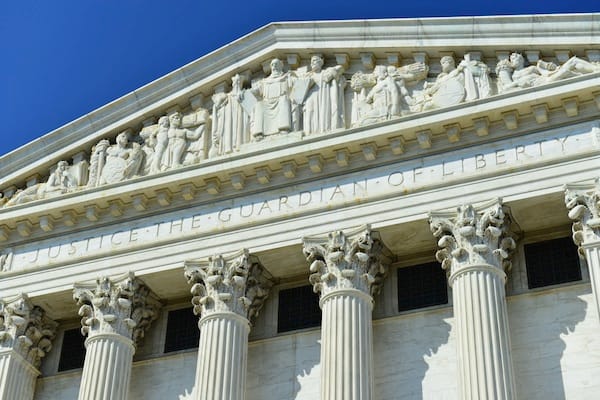DNA Law in California May Not Be Protected By Recent SCOTUS Ruling


Richard Cavalleri / Shutterstock.com
On Monday, the Supreme Court of the United States ruled on Maryland v. King, a case dealing with a state law in Maryland that allows police officers to take a DNA swab -- without a warrant -- from suspects arrested for violent felonies or burglaries. The high court upheld the law, concluding that cheek swabs are taken for identifying purposes and are no different from taking fingerprints during the booking process or using tattoos to positively identify a suspect.
The debate before the nine justices was privacy versus public safety. The majority concluded that Maryland's law did not violate the U.S. Constitution and local law enforcement can take DNA swabs from arrestees without a warrant for serious felonies. The questions this decision raises aside, the ruling will likely have a notable impact nationwide.
Currently, all 50 states require DNA samples from people convicted of a felony. However, Maryland is not the only state that has a law allowing local law enforcement to take cheek swabs from arrestees. California not only has a similar law, it has a much broader law that may not have the same luck in court.
Maryland's law allows police to take a DNA swab from a suspect arrested for a violent felony, but the DNA profile is automatically expunged if the person is acquitted of the charges. In California, anyone arrested for a felony must submit to a DNA swab. If a suspect is acquitted of the charges against them, the genetic profile is not automatically expunged.
While DNA profiles are in the state database, they can be compared to genetic evidence found at crime scenes at any time to check for a match. In order to get a profile removed from the database, a person must apply for it to be removed.
The Supreme Court's decision protects the California law, but perhaps only to a certain extent. Civil liberty and privacy groups challenging the law may still have a case to make since there are some key differences that separate it from the law in Maryland. Opponents say the DNA law in California is overly-broad, but so is the language in the Supreme Court's decision.
Michael T. Risher, an ACLU attorney, argues that the language in the high court's decision is so broad it could authorize the government "to take DNA from someone arrested for driving without a seat belt on or walking a dog in a national park without a leash.”
This may be an exaggeration, but for many opponents of the Maryland law and similar laws nationwide, the issue is far from resolved. At the moment, it is unclear how Monday's ruling will affect the DNA law in California



